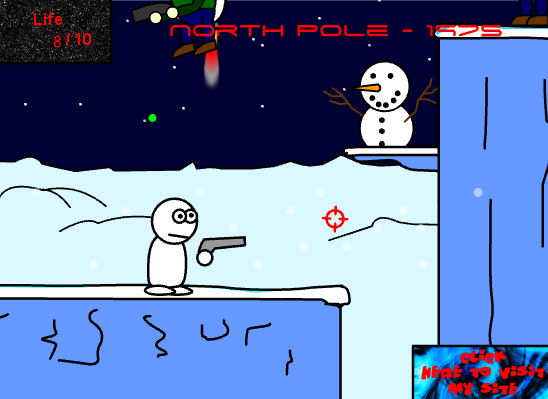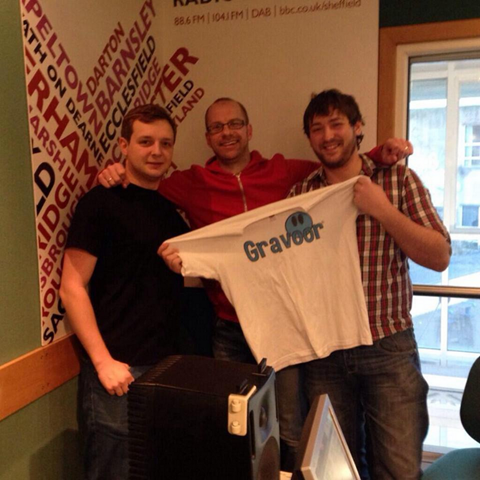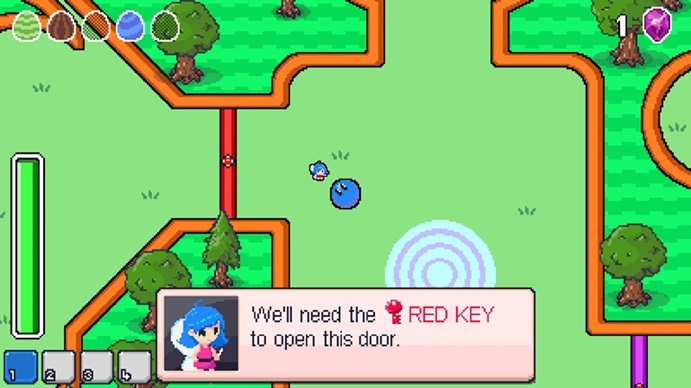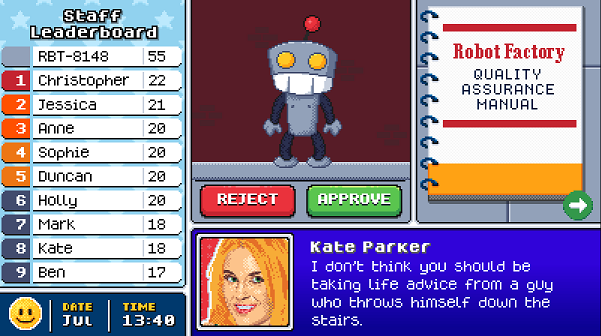I first started making videogames in the early 2000s, using software such as The Games Factory and Flash to develop short games that I'd distribute either amongst my school friends on burned CDs or online via Flash game portals. Back then I'd make about a game a month. Almost all of them were terrible but I had fun making and sharing them.
One of my earliest games was a top down shooter called "The Arnold Schwarzenegger Tree Game" that I made with the stock sprites that came with Games Factory. Quite frankly, the game was terrible. In it you played as a generic action hero who just happened to look a little "Arnold Schwarzenegger-esque" battling an oak tree which would fly all around the room firing bullets at the player. If you got hit you died, if you shot the tree yourself it would lose health and eventually be defeated.
Noone that I know of ever defeated the tree, but me and my brother still had a great laugh trying. The game was broken, I doubt it would even pass the judgement process on here, and yet over 20 years later I still remember it and the great time we had playing the ridiculous thing. My games eventually became bigger and better (but no less broken), especially as I moved on to Flash.

"Time War" - A Flash game I made in 2005.
Sadly (or perhaps fortunately) the vast majority of these games are now lost to time, either because I didn't have to foresight to back them up or because I purposefully scrubbed them from the internet for the stupid reason that I did not want the older ones to bring down my more recent work. A decision I regret as an adult because now I understand that:
- Everyone makes terrible shit when they're starting out,
- No one cares that you made a few bad games.
My output came to a stand-still when I went off to university, but when I graduated I started my own game studio with some friends so we could make games full time as a job. We managed about 2 years of this, and even had some relative success, but ultimately the money we were making was not enough to sustain us so we ended up packing it in and getting "proper jobs".

Me and one of my old business partners, when we went on the radio to talk about game development and our Gravoor iOS game. (2013)
After that up until last year I didn't really make anything anymore. I had a lot of ideas for games and projects I wanted to make, but the way I thought about game development had changed. To start with, my time trying to do my hobby professionally left me with this mindset that my games NEEDED to be successful and make me a lot of money. Otherwise whats the point of putting in all the work?
I'd be too busy worrying about industry trends and the games I thought audiences wanted to see to even get started. I was a long way from the days where I was happily sat there making "The Arnold Schwarzenegger Tree Game" for an audience of about 6 people. My mindset had sapped all of the fun out of it.
I found myself having conversations with people about game development where I'd say "Oh yeah I make games." and they'd say "Really? What have you made?" and I just wouldn't have an answer because the last game I made was 6 years ago and currently delisted from stores.
I'd become one of those creative types who never makes anything, and I didn't like it.
How I got past this
As I'm sure you can all relate, in 2020 lockdown ground my social life to a halt. With all the extra time on my hands I decided I might as well try to make a game. After a couple of years of stopping and starting I think at the end of 2022 I came to the realisation that I was going about this all the wrong way. I was still trying to make something that might sell and appeal to a wide audience. I remembered that I didn't get into games for that, I got into games just for the fun of making a game. I didn't want to just make whatever was currently popular, I just wanted to satisfy a creative itch.
So I decided to set myself a few basic rules that would help me actually deliver a product.
Know what I'm making before I start.
Sounds obvious but what I mean by this is; when I start a project I like to know exactly what it is and the scope of it.
In 2021 I tried to make an metroidvania version of my Gravoor games. For those who haven't played those, they are simple maze games where you navigate a character through courses. In my head it sounded amazing. One big map and you had to go around collecting crystals, which functioned like the stars in Super Mario 64. You'd go around picking them up, collecting power ups that you could activate at your leisure, this would open up new areas of the map to explore.
I started to make it, everything was going well but as I'm developing questions started to come up like:
- What happens when you collect all the crystals?
- Why are we collecting crystals?
- Maybe there could be some traditional courses in this game as well?
- Do we have enough enemy types? No? Well then should we go back and retroactively fit some in.
- Shall we change the art style? Yes, because I'm sick of looking at this one!

The "open world" Gravoor project from 2021.
It was a very aimless project that I ended up just losing interest in. I'm not saying that there isn't room to be creative as you go. But I find I have a much better chance of finishing a project if I know all the basic building blocks of what it is before I even write the first line of code. The skeleton of "heres what it is", "how it starts" and "how it ends" helps me to see a project through to completion. I allow myself to be a lot more loose with adding the "flesh" so to speak.
Don't spend too long on it.
I try to make my projects from start to finish in around 1 month give or take. The reason I do this is because I know that if I take any longer I'm going either going to get bored or the next big exciting idea will come along and I'll end up shelving what I'm working on to work on that instead. This has been a huge issue for me over the years, where I'd start a project one month and then scrap it the next to go do something else. Only for THAT project to get binned too and the cycle continues.
I figured that rather than kid myself that my next great idea is going to be the one I stick to, I should just accept that this is how I work and plan my projects around a 1 month development cycle. Sometimes I go over, or sometimes I have a tighter window such as if I'm participating in a jam. But when I'm planning projects I will aim to spend a month on each game.
If noone likes the game, thats ok.
I'm not going to say anything stupid like I want to make a game noone likes, but if I make a game that I wanted to make, and it turns out I'm the only person who thinks its a good idea then I'm ok with that at least I made it.
I'm sure its a controversial stance but I don't really think I'm big enough to be worrying about things like market trends and consumer research. If I was back at my company trying to make games to earn a living then yeah I'd probably better consider that sort of thing. If I'm just making a game to drop on Itch and Newgrounds for free, and I'm only commiting about a month to it anyway then I figure may as well just make whatever the hell I want. It'll either be something that people really enjoy for its novelty or it'll be a steaming pile of shit everyone will have forgotten about after a week anyway.

Robot Factory is a rather depressing game I made in 2023. It deals with issues such as cost of living crisis, AI takeover and paying bills. Whilst the game was well recieved, I don't think I would have taken the risk on this if my ability to put food on the table that month was resting on it's success.
Keep it fun.
When I made my first game back in 2002 it wasn't for the acclaim, nor was it to make money. It was for the pure exhilaration of having made a video game. Somewhere along the way I lost that.
There was a quote I always remember from Trey Parker's foreword to the book Make Your Own Damn Movie by Lloyd Kaufman. It was:
"If you want to make a movie because you want to become rich, go put a thousand dollars down on black instead. Your odds are way better. You could also try law school or medical school; it will take the same amount of time to see any profit from your film. You may even want to try selling your sweet ass on the street, odds are you will make more money doing that. If, however, you want to makea movie because you want people to laugh, or cry, or puke - then read on."
Trey Parker
I appreciate that quote is ironically from a guy worth half a billion dollars but I do think hes right, and in my experience I think what hes saying here also applies to games. For every indie success story there are hundreds of thousands that never find an audience. I bet there will be some of the greatest games ever made right here on this very website that have gone undiscovered. I can't really see the value in spending months or maybe years making a game thats tedious hard work in the hopes it'll make me a pile of cash just for it to be a drop in the sea anyway.
All projects have their difficulties of course, but if I'm making a thing I don't really care for then I might as well not bother because the potential return on investment is miniscule anyway.
The Results
Using the principles I described above I went from making no games in about 10 years to making 7 games in 12 months. These games were Sunday Drive, Bang!!, Robot Factory, All-New Gravoor, Super Gravoor, Mære and Loch Crystallo.
I don't know that I'll necessarily make that many games this year too, but I will definitely be making some. I have a game I'm currently working on, and some ideas I'm cooking up for later in the year. I hope you'll stick around and play them.
PhantomArcade
"If noone likes the game, thats ok." is 100% the perfect mindset. Im happy to see that mindset in someone, that liberation is the key!!!
Chris
Thanks thats really it. Once I realised this I had so much more fun making games than I was before. I also think it creates some really interesting works when people can feel free to experiment. Of course I love it when people do like my stuff, but theres always next time if not.